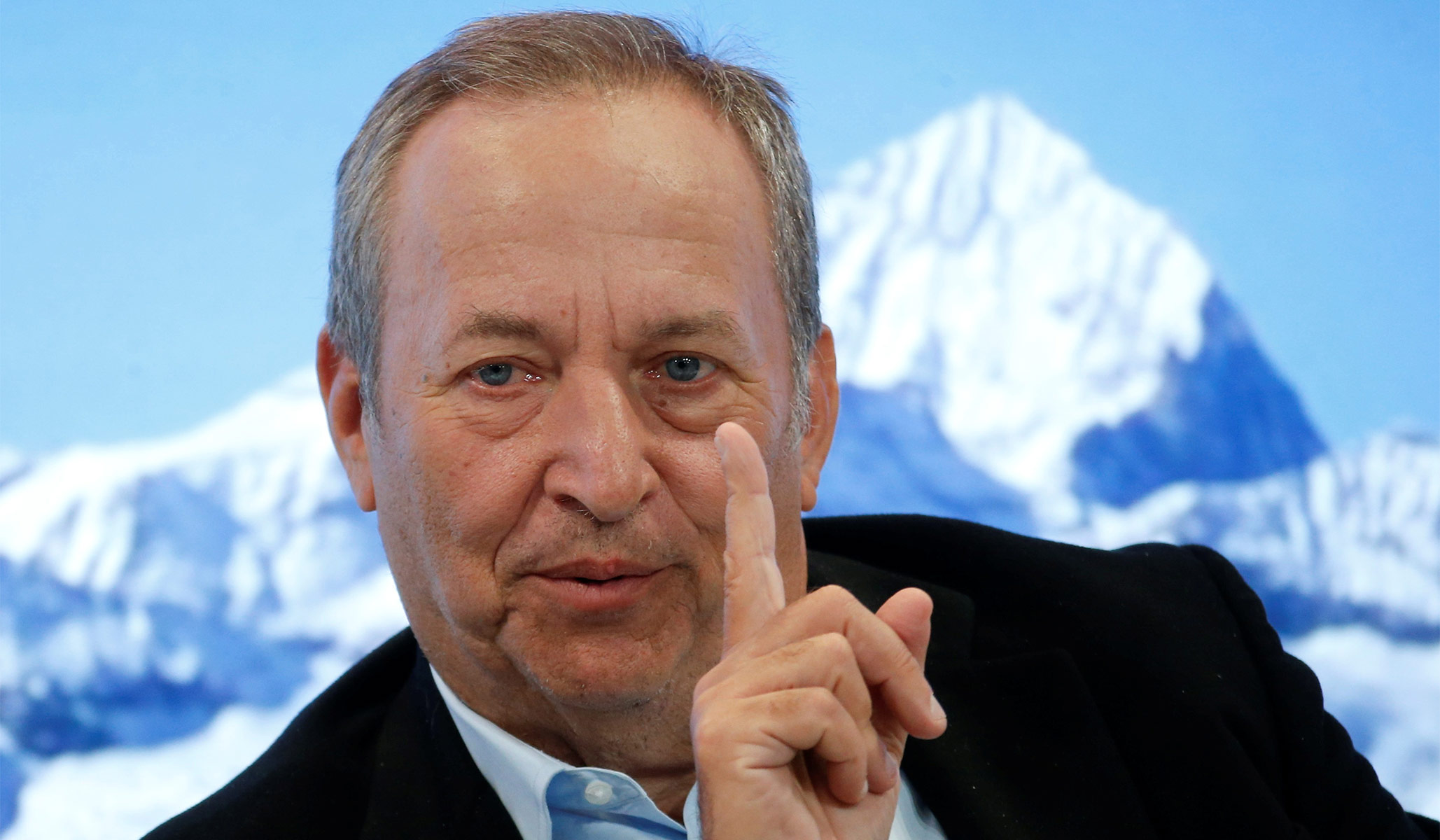
(Ruben Sprich/Reuters)
Maybe it’s just me, but I don’t think that Larry Summers is entirely confident that the Fed has got this whole inflation thing under control.
He writes:
The stock market responded positively Wednesday to the Federal Reserve’s move to raise interest rates and plan for six more increases by year’s end. I wish I could share that enthusiasm. Instead, I fear, the economic projections of the Federal Open Market Committee (FOMC) represent a continuation of its wishful and delusional thinking of the recent past.
“Wishful thinking.” “Delusional.” These are not kind words.
Start with the labor market. It is now tighter than at any point in history: The vacancy-to-unemployment ratio is in unprecedented territory, quits are at near-record levels and wage growth is still rising at 6 percent, having accelerated rapidly in the past few months. The FOMC expects further tightening, to a 3.5 percent unemployment rate, which it expects will be maintained through 2024.
Three years at 3.5 percent unemployment, something the country has not seen in about 60 years, is highly implausible. Indeed, the historical experience is that when unemployment is below 4 percent, there is a 70 percent chance of joblessness rising rapidly in the next two years as the economy goes into recession.
Summers’s statistics on past employment are damning, although past is not, of course, always precedent. Nevertheless, my best guess continues to be that the labor shortage is largely a temporary phenomenon created by the combination of dislocations resulting from a combination of emergence from the pandemic and the soothing effects of savings accumulated under the pandemic-relief regime. Those savings will erode, a process that will be accelerated by inflation. Moreover, the prospect of transitory, uh . . . prolonged inflation may also lure some of those newly retired boomers back into the workforce. The value of their retirement savings may look a lot more vulnerable than they did.
Additionally, even before we consider the longer-term impact of employment and underemployment brought about by automation (a process accelerated by the pandemic), the demand-suppression created by inflation and, quite possibly, the hit to the economy brought about by blowback from the Russian sanctions may also start eating away at employment rates. I’d be surprised if today’s tight labor market endures.
All that said, the Fed is working, as Summers notes, on the assumption that unemployment will remain at these ultra-low levels. Reconciling that with the central bank’s inflation expectations is, uh, not straightforward.
But there’s more. Summers continues (my emphasis added):
A look at the Fed’s forecast revisions since December reveals its confused thinking. The central principle of anti-inflationary monetary policy is that to reduce inflation it is necessary to raise real rates. Equivalently, it is necessary to raise interest rates by more than the inflation being counteracted and above a neutral level that neither speeds nor slows growth. I had thought this was universally accepted following the work of former George W. Bush administration official John Taylor and former Obama administration Council of Economic Advisers chair Christina Romer and her husband, David Romer.
Yet because of upward revisions in the inflation forecast, the Fed’s predicted real rates have actually declined in recent months.In other words, the FOMC’s plans do not even call for keeping up with the rising inflationary gap. It is hard to see how interest rates that even three years from now will be about 2 percentage points less than current rates of inflation can reasonably be regarded as providing sufficient restraint.
Does any of this matter as long as the Fed is raising rates? Some will reject my concerns as technical quibbling. But under what reasonable economic model does rapidly declining inflation occur alongside negative real interest rates and record-low unemployment?
Quite.
Perhaps the Fed still believes that inflation is in fact transitory and that it will evaporate as supply chains are restored. This has never seemed plausible, given accelerating residential and wage inflation and room for acceleration in the costs of health care, airfare and lodging. It seems even less plausible today, with war in Ukraine and covid lockdowns in Asia.
Or perhaps the FOMC members are wary of pessimistic forecasting. But why shouldn’t they forecast realistically? It is an odd and damaging view of democratic accountability that demands disingenuous forecasts from revered institutions. In a world where financial crises are always possible, the credibility of the Federal Reserve is a precious asset. It should not be lightly sacrificed.
And now consider what is going to happen to the credibility of the Fed if, Raskin or no Raskin, it moves ever closer to joining in the climate wars and embracing other aspects of a highly politicized progressive agenda.

